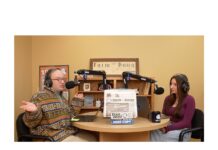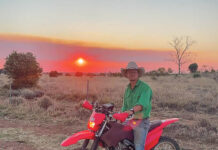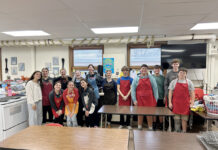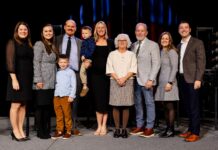(Scroll down to see a video from the social media panel.)
LONDON, Ohio — Don’t let the phrase “social media” scare you. It’s just the same old coffee shop conversations farmers have always had with one another — only now it’s in a bigger coffee shop called the Internet.
Ohio hog farmer Charles Wildman and crop farmer John Motter shared their personal reasons for speaking out for the ag industry through social media during a special panel Sept. 23 during the Farm Science Review.
They were joined on the panel by public relations/marketing professionals Melanie Wilt, of Wilt PR, and Alison Gunden, marketing manager for Great Lakes Hybrids.
The voice of a farmer
Wildman became more vocal for his industry as a result of the 2009 statewide Issue 2 ballot battle over livestock care standards. At that time, he heard a presentation by Paul Shapiro of the Humane Society of the United States, and Wildman questioned if what he was doing on his farm was right, because he didn’t know how to respond.
“I realized that if what I do was good, reasonable and proper, I was going to have to have a voice,” to offset opposing views, “and that’s what got me started in social media,” he said.
“We’re spokespersons all of the time,” added Motter, a third generation farmer in the small community of Jenera, although his family’s farm roots stretch 13 generations deep into Pennsylvania. “If we love what we do, we need to talk about it.”
Those conversations, he added, need to be about the safety of our food and about all of the food options available to consumers.
“Agriculture does not win when we talk one kind of food system versus another,” Motter said. “We need ‘em all. Let’s tell our story and tell it in a very positive way.”
One farmer, one story
Wildman, whose farm is Standing Oaks Enterprises near South Charleston, does that through Twitter, but primarily Facebook posts where he posts pictures taken from the combine or tractor cab or of his son petting the farm dog.
“I just put a human face on what we’re doing,” he said, “and with that, you gain trust for the bigger issues.”
He often answers questions via social media, or uses those everyday photos or posts as teachable moments.
Putting yourself out there
But even sharing everyday farm tasks can be scary, when you wonder if they’re going to be taken out of context.
“There’s a certain amount of terror when you put yourself out there,” Wildman admitted.
Still, reminded Great Lakes Hybrids’ Gunden, “sometimes we have to be vulnerable.”
She shared the story of this year’s Wisconsin Farm Technology Days, hosted at the Statz Bros. Farm, a large dairy operation near Sun Prairie, Wisconsin. An estimated 45,000 people visited the farm over the three days.
The farm was “very open about what they do,” Gunden said, but nearly every visitor left with a greater understanding of how a farm of that size functions, and Gunden said she didn’t hear one negative comment.
“I don’t know how many farmers are willing to open their doors, that’s kind of risky, right?” she said.
But, she added, “people don’t know, unless we’re willing to share, or educate.”
Long live the conversation
Wildman said the key for him is simply thinking about individuals who might have different views as people, period, not “targets to be conquered.”
Motter said he’s a lot more comfortable in his farm shop or with a steering wheel in his hand, looking out the window of a tractor, than he is talking to groups or advocating for agriculture via social media. But he confessed to using those long hours in the cab to practice talking about farm issues. He even bought a little tape recorder and taped himself talking, so he could critique himself and get more comfortable making his case for agriculture out loud.
“We all start where we are,” he said. “We all need to do more; we all need to do better.
“I just encourage everybody to do something,” said Wildman. “Get started and be authentic. I’m only an expert on me.”










